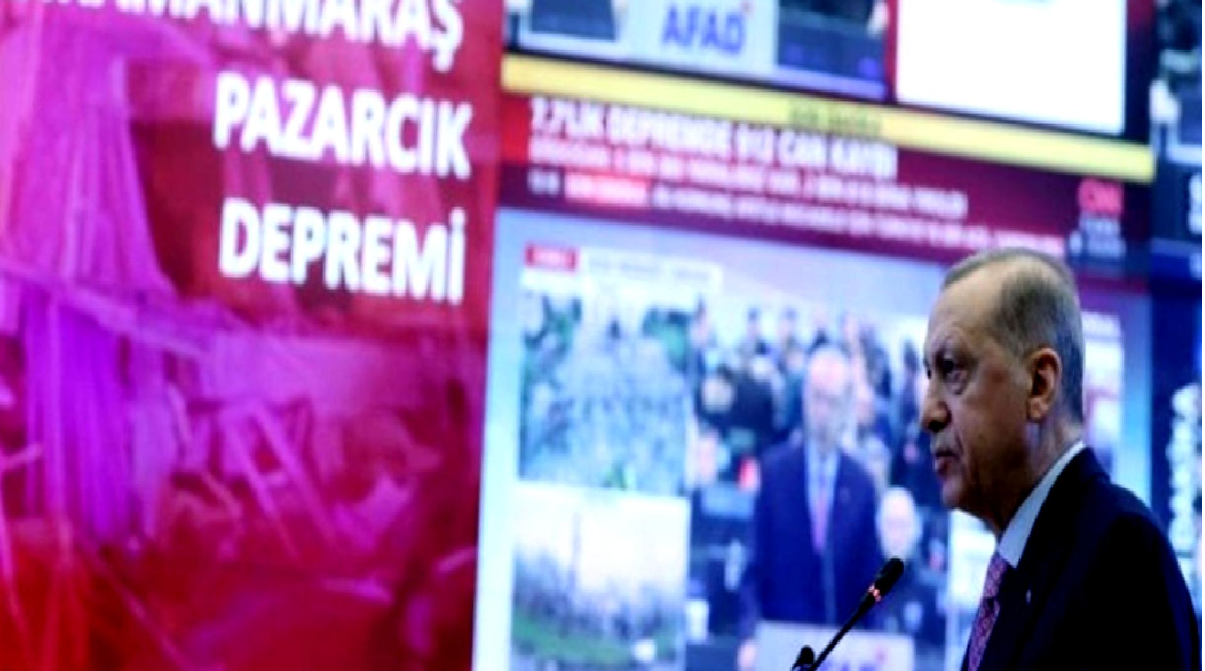“As the earthquake death toll soars, so does criticism of Turkey’s government response, remarks Rob Schmitz at npr.org, a view shared by numerous international media outlets. In as much as Erdogan confidently claimed that all was under control at the second day of the disaster, while touring the earthquake zone, a majority of reports filed from the are suggest the emergency response of his agency, AFAD has been woefully lacking. The specter of extremely competitive elections, tentatively scheduled for 14 May complicates Erdogan’s job, because the entire opposition is already on the field, criticizing his efforts and building an alternative relief network. Many analyst fear the rescue effort could fall victim to electioneering, as the objective of the parties shift from helping the people to making mileage out of the disaster.
“This government was just not prepared,” says Soli Ozel, lecturer at Kadir Has University in Istanbul.
As Turkey’s death toll rises — now more than 17,000 — so does criticism of the government of Turkish President Recep Tayyip Erdogan and what many see as its lack of preparation and sluggish response to the tragedy. Even Erdogan himself has admitted “the first day we had some discomforts,” before insisting to survivors near the quake’s epicenter, “second day, and then today, the situation got under control.”
But critics like Ozel point out that national funds meant for natural disasters like this one were instead spent on highway construction projects managed by associates of Erdogan and his coalition government.
Turkey collected earthquake taxes for over 20 years
After a catastrophic earthquake in northwestern Turkey killed more than 18,000 people in 1999, authorities imposed an earthquake tax meant to corral billions of dollars’ worth of disaster prevention and relief.
“They grease their cronies’ palms with earthquake taxes,” says political opposition leader Kemal Kilicdaroglu. “Where is that money? It’s gone.”
Ozel says it’s not just a “near-total incompetence on preparedness on the part of the government” in responding to this week’s earthquake. “To make matters worse, if that were even possible,” he says, “the government is also making it almost impossible for other organizations, civil society, citizens themselves and mayors and municipalities to actually help.”
Erdogan’s centralization of Turkey’s government has meant a plethora of restrictions on how individual cities and aid organizations can operate in the country, hampering overall rescue efforts. (Turkey’s embassies, meanwhile, along with an array of nongovernmental organizations and cultural associations, are collecting donations internationally.)
With an election expected by June, Ozel says Erdogan has already been weakened by out-of-control inflation in Turkey. “I would expect the government to actually be one of the victims under the rubble of this earthquake,” Ozel predicts.
Volunteers hard at work away from politics
But politics seems far off for volunteers distributing donated blankets, clothes and food at a warehouse on the banks of Istanbul’s Bosporus Strait.
An 18-year-old high school student, Emrihan Korkmaz, has been working on the aid effort for three days. Schools throughout Turkey have been ordered closed to mourn victims of the earthquake and so that people like Korkmaz can help out.
“We’ve managed to load 18 semitrucks and send them to the earthquake zone. They’re filled with blankets, clothes, but there is a more urgent need for food,” he says, as he loads a box underneath a banner with the image of Erdogan hanging from the ceiling. “However, we can get it to them, it doesn’t matter. People there need food.”
Outside the warehouse, 20-year-old Irim Nur Soleymez arrives with bags full of clothes and blankets to donate.
When asked if Erdogan’s government has done enough to help the victims, Soleymez says, “They’ve done what they’re able to do. This is not a time to talk about politics — it’s a time to help people who need it.”
Follow our English language YouTube videos @ REAL TURKEY: https://www.youtube.com/channel/UCKpFJB4GFiNkhmpVZQ_d9Rg
And content at Twitter: @AtillaEng
Facebook: Real Turkey Channel: https://www.facebook.com/realturkeychannel/
